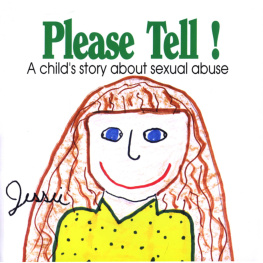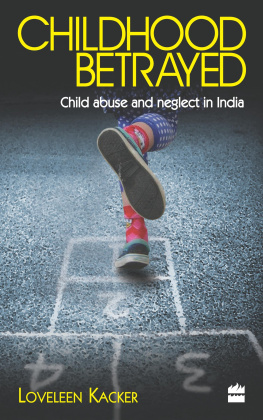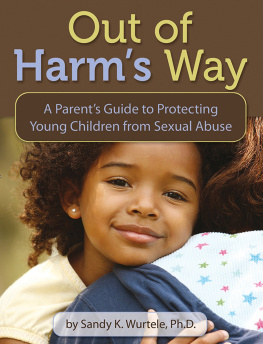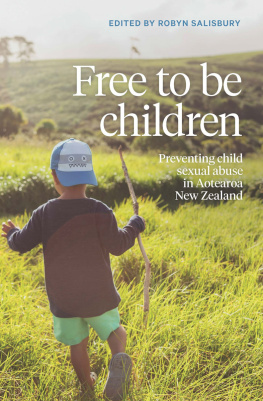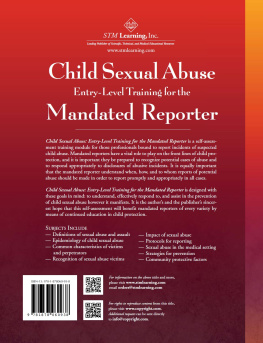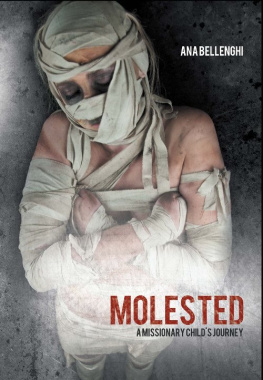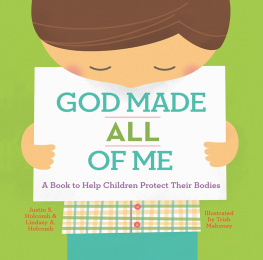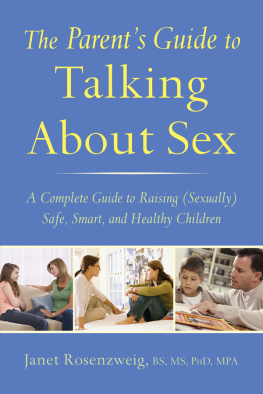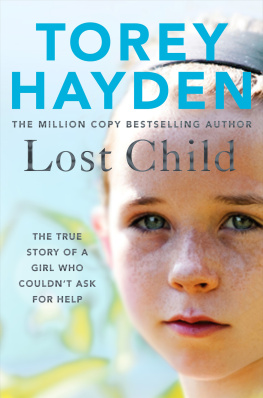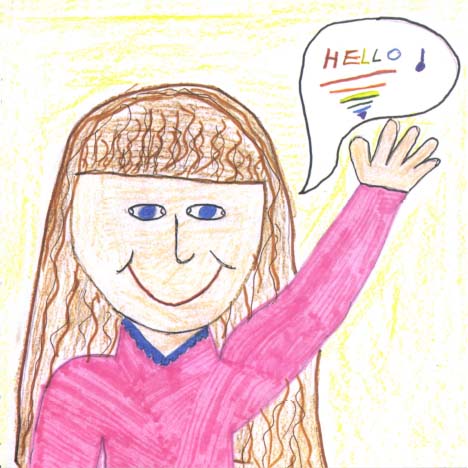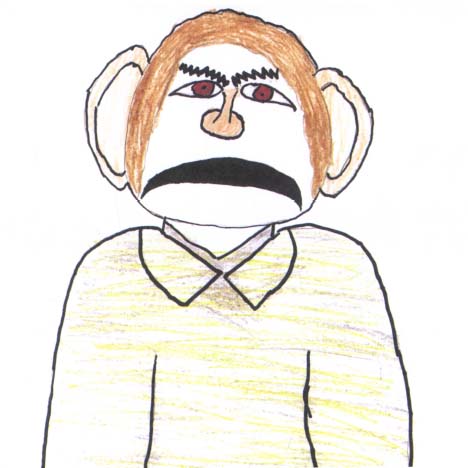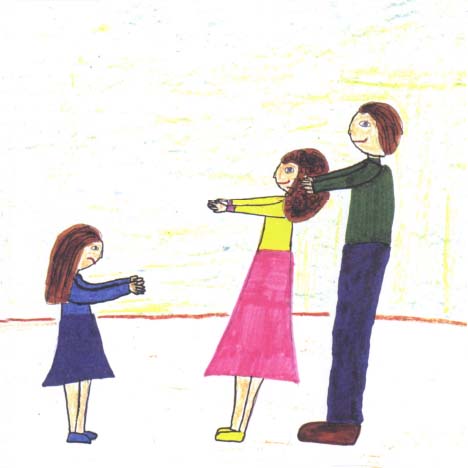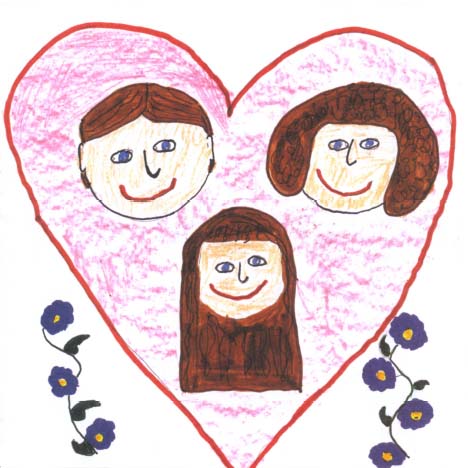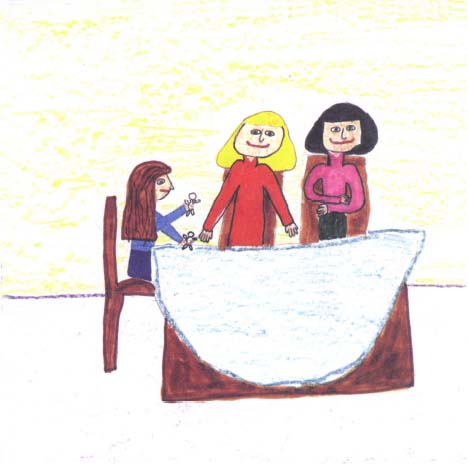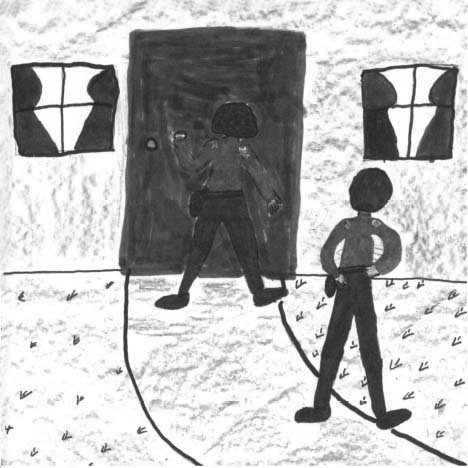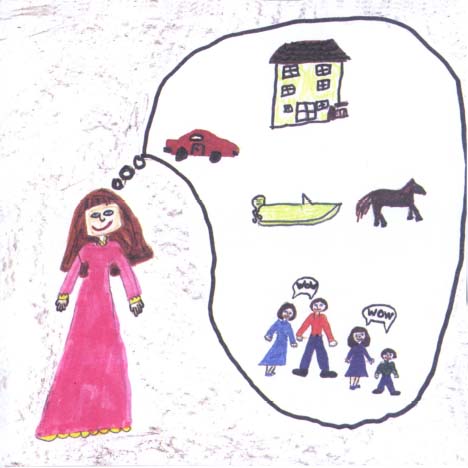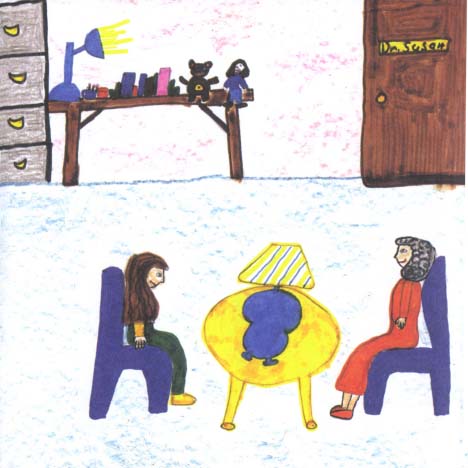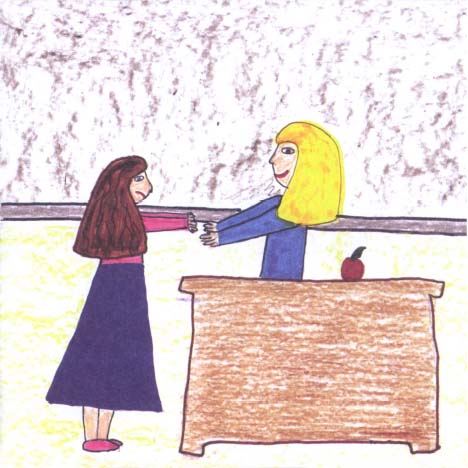Please Tell!
A Childs Story About Sexual Abuse Written and Illustrated By
Jessie With a Foreword by Sandra Hewitt, Ph.D.
Hazelden Publishing
Center City, Minnesota 55012-0176
800-328-9000
hazelden.org/bookstore First published August 1991. Copyright 1991, Hazelden Foundation.
All rights reserved. No portion of this publication
may be reproduced in any manner without the written
permission of the publisher.
ISBN 13: 978-0-89486-776-7
Ebook ISBN: 978-1-59285-844-6
Library of Congress Catalog Card Number: 91-72598
Printed in the United States of America.
About the author: Jessie was nine when she first wrote
Please Tell! and eleven when she revised and illustrated it. Jessie enjoys crafts, jazz dancing, and gymnastics, and hopes to be a dance teacher or perhaps a marine biologist one day.
ForewordBy Sandra Hewitt, Ph.D. One of the central dynamics of child sexual abuse is secrecy: children are told by their abusers not to tell.
ForewordBy Sandra Hewitt, Ph.D. One of the central dynamics of child sexual abuse is secrecy: children are told by their abusers not to tell.
When secrecy exists, pain is borne alone. This isolation compounds the pain and confusion caused by abuse. Child therapists, child protection workers, teachers, victim witness assistants, counselors, and even parents will find that this book can be used to speak directly to children on several levels. First, for children who have been abused, this book offers affirmation for their disclosure, as well as the knowledge that they are not alone, that this has happened to someone else too. Often the treatment of young children is done individually. These children arent able to get the support of other abused children.
Children who have been sexually abused feel stigmatized. They often feel that because something bad happened to them, they must be bad or weird. Learning that they are not alone can help soften this sense of shame and isolation. Jessies words and pictures let other children know they are not alone, and that it is good to tell. On a second level, this book can be used by professionals who evaluate sexual abuse. Care must be taken not to contaminate the information a child gives during evaluation of the abuse, but much more often than being told what to say, children are told what not to saydont tell about the abuse.
When a child is censured or fearful, Jessies direct child-to-child words can speak as no adult can. They carry the message Its okay to tell. Help can come when you tell. On a third level, sexual abuse prevention trainers may find this book helpful to share as they teach children about sexual abuse and how to deal with it. Jessie depicts a childs courage to tell, and the help that comes afterward. In doing this, she lets other children understand how it feels when abuse happens. Because many children are afraid to tell their friends they have been abused, they live with their pain and shame alone.
Jessies words help share the feelings and needs of abused children in a way that lets other children understand better how to relate to the abused childs needs. Not all sexual abuse cases result in the kind of effective resolution that Jessie experienced. But even with cases in which a childs statements are slow to be believed and supported, Jessies story can add a sense of hope for what should be, and the knowledge that the child protection system can work for children. Children can talk to children in a way adults cant. Simple, direct, and from the heart, Jessies message can help give children the permission and the courage to deal with sexual abuse.
Sandra Hewitt, Ph.D., is the author of literature on childhood sexual abuse. Employed by River City Mental Health Clinic, St.
Paul, Minnesota, Hewitt writes and does research and is a frequent lecturer across the country. To my cousins, who went through it with me. Dear friends everywhere,
I was hurt by someone I loved and trusted, when I was four.
He was my uncle and my godfather.
He made me do things I didnt want to do at all! He hurt my arms and legs and places that are private on my body.
I told him NO! He didnt listen.
He had an evil smile. It seemed like his eyes almost turned red.
For a while I never told because he said he would do awful things, like beat me or my mom or dad, or do to my baby sister what he did to me.
He said if I told, bad men would take me away and cut off all my hair.
When I looked up, all I saw was that Mom and Dad loved me.
They were glad I told.
My mom and dad took me to see some ladies with dolls.
My mom and dad took me to see some ladies with dolls.
I pretended a girl doll was me and a boy doll was my uncle. I used dolls to show them what he did to me.
The police went to see my uncle.
He never hurt me again, and he never did the things he said he would do.
Now I am nine. I still have the terrible memory in my head. The trouble is getting over it.
Mommy and me thought of a way to get the nightmares out of my head when Im thinking of himand it works!
I pretend that I can have anything I wish for.
Then I think of what I would give everyone in my family.
Soon the scary memory vanishes from my head. Finally I fall asleep.
But a woman named Susan helped me even more.
She has a special job. She helps children with their problems or fears. Shes called a psychologist. She helped me understand what happened.
I learned what happened to me is called abuse.
You dont have to be scared to tell a psychologist about how you were abused. He or she is trained to help you, and they willtrust me!
If you cant see a psychologist, just tell someone, like a teacher, a friend, or someone special.
Keep telling until someone helps you. You dont have to live in a bad dream anymore.
When Im around men, I feel scared and embarrassed because of what happened to my body. If you have been abused, dont worry. Its okay if you feel that way too.

